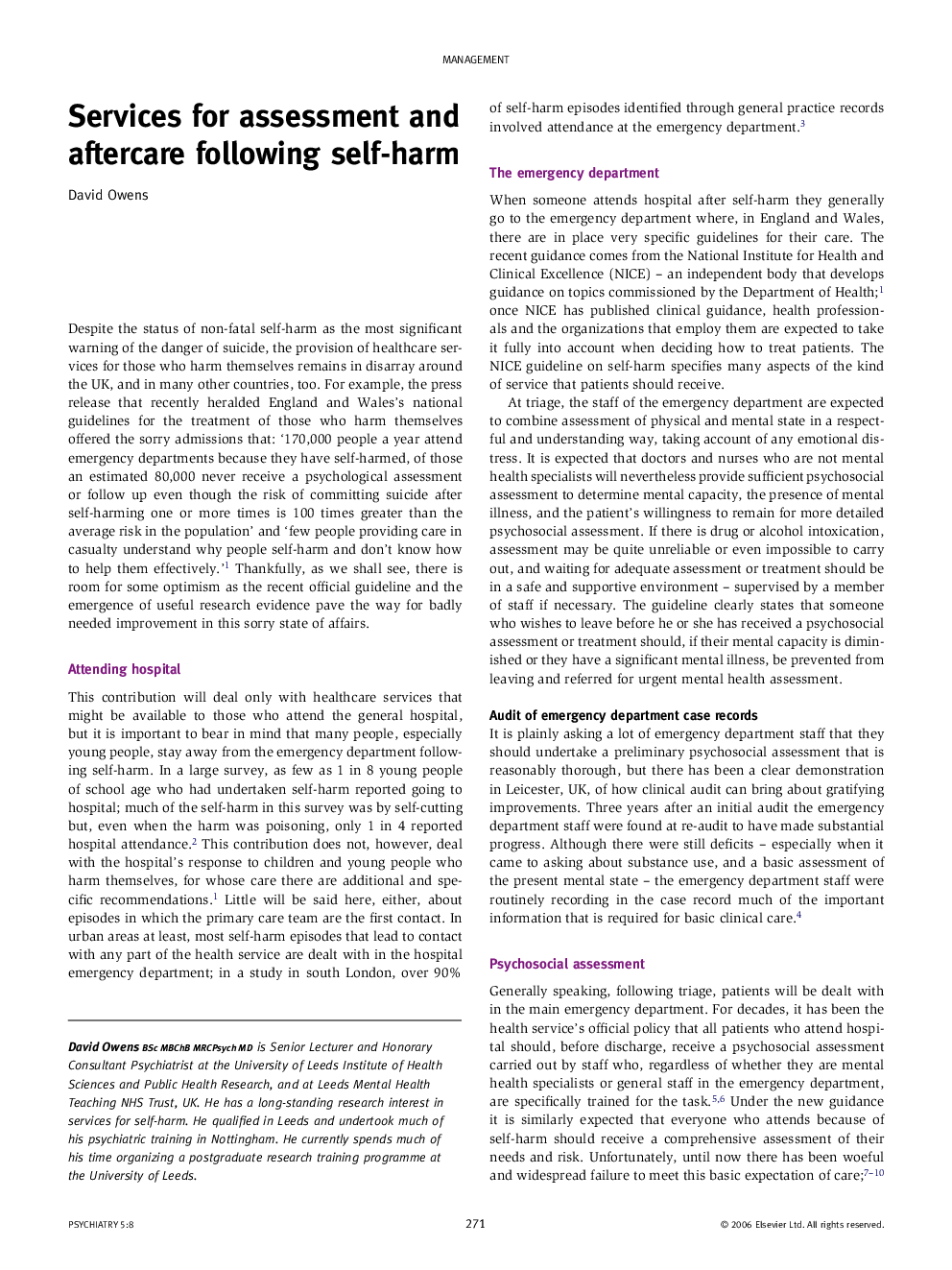| Article ID | Journal | Published Year | Pages | File Type |
|---|---|---|---|---|
| 4190263 | Psychiatry | 2006 | 4 Pages |
There are uneven standards of care for people who attend hospital because of self-harm (self-poisoning and self-injury), in the UK and elsewhere. In the hope of improving the situation the UK Department of Health commissioned a National Institute for Health and Clinical Excellence (NICE) Guideline on self-harm, which sets out the standards of care for staff in the emergency department. They should, in the first instance, evaluate the patient's physical and mental health to allow for more thorough psychosocial assessment before the person leaves the hospital. The psychosocial assessment should take account of the person's mental health and social needs, as well as their levels of perceived risk, and there should be adequate levels of training, supervision, privacy and inter-professional communication. Effective intervention following an episode of self-harm, whether initiated by emergency department staff of by mental health professionals, is an uncertain business because the evidence base is scant and equivocal. Research evidence fails to show clear advantage to simple alterations in the structure of the services such as the handing out of cards that offer the person a telephone number to call if he or she is feeling like undertaking further self-harm, or the sending of postcards that suggest getting in touch with the hospital. The best current evidence of benefit comes from brief forms of psychological therapy based on problem-solving techniques derived from interpersonal therapy of from cognitive therapy. Benefits include reduced repetition of self-harm and improvements in mood, hopelessness and problems experienced.
